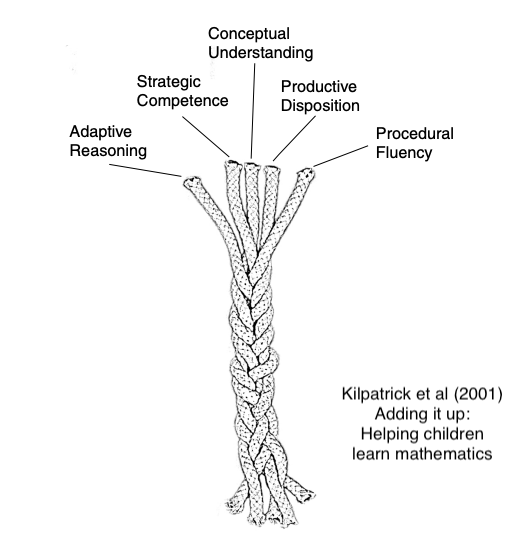Or search by topic
Number and algebra
Geometry and measure
Probability and statistics
Working mathematically
Advanced mathematics
For younger learners
The NRICH Rope Model
The Kilpatrick rope model reflects NRICH's view of the characteristics of a good mathematician.
 Our curriculum tags and mapping documents identify the Conceptual Understanding and Procedural Fluency that each of our problems helps to develop.
Our curriculum tags and mapping documents identify the Conceptual Understanding and Procedural Fluency that each of our problems helps to develop.
If students are going to be good mathematicians, they also require a Productive Disposition. This means that they are positive about the subject and positive about their ability to make progress. When faced with a new task, students demonstrate positive attitudes, by being:
- Curious
- Resourceful
- Collaborative
- Resilient
They also need to demonstrate Strategic Competence. In order to make this possible:
- students first need to have time to explore, by being given time to be playful and tentative, and to make conjectures
- students then need to have an opportunity to share initial ideas with their partners and the whole class
- students are then in a better position to tackle the problem in an organised, logical and systematic way
Throughout this process, students need to demonstrate Adaptive Reasoning. They are required to communicate their ideas and any general insights by:
- explaining
- justifying
- proving
To see how we have adapted this model for use with students, see Nurturing Successful Mathematicians.
Alan Wigley's Challenging Model for Teaching Mathematics describes what this might look like in the classroom.

